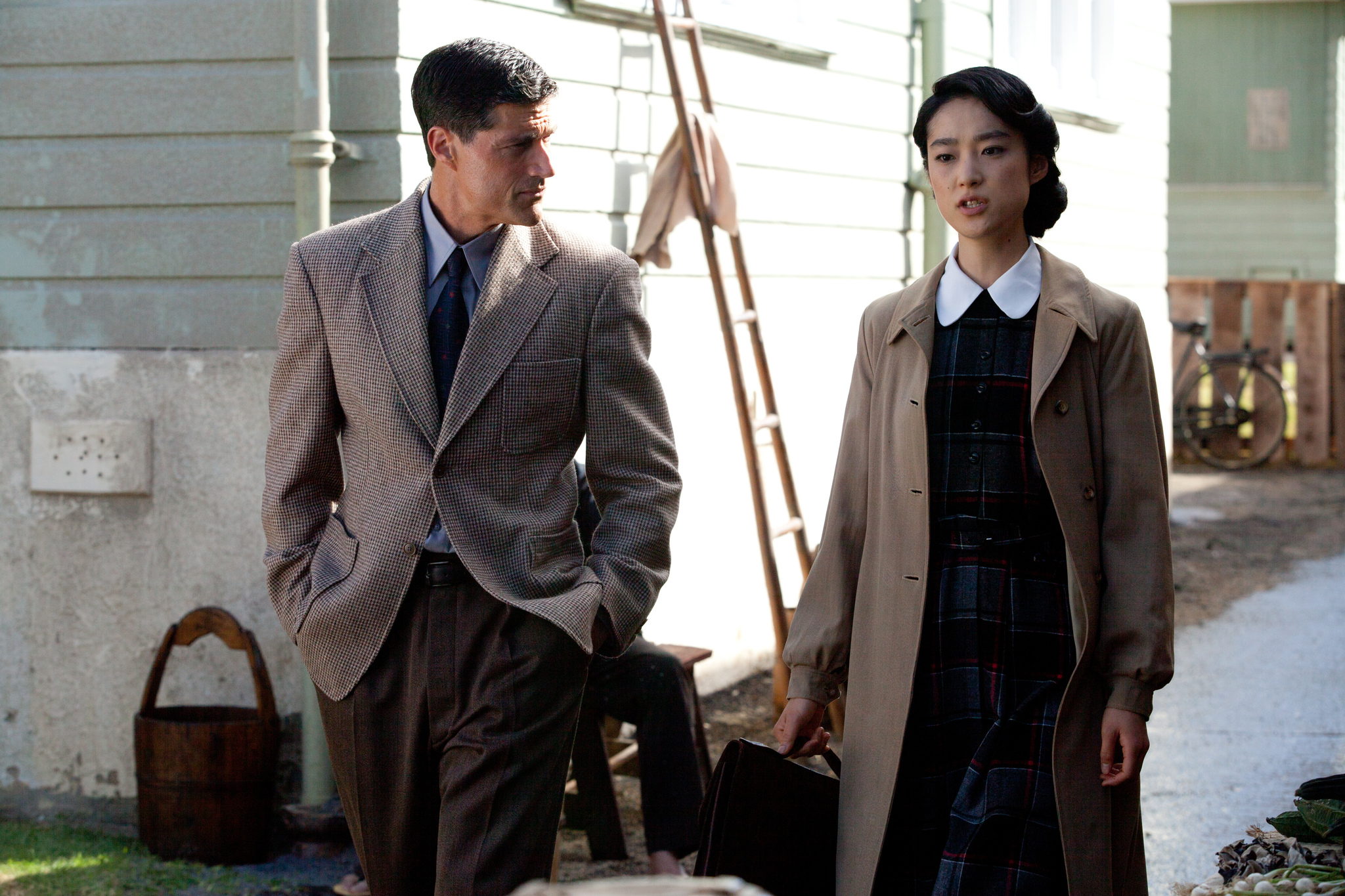By Chlotrudis Independent Film Society
Rating: 2.5 cats
Director: Peter Webber
Starring: Eriko Hatsune | Isao Natsuyagi | Matthew Fox | Shohei Hino | Tommy Lee Jones | Toshiyuki Nishida

Country: united_states
Year: 2013
Running time: 105
IMDB: http://www.imdb.com/title/tt2103264/combined
Jason says: “Under normal circumstances, I might grumble about EMPEROR being a case of keeping an interesting story and larger-than-life characters at arm’s length in favor of someone that the audience can perhaps more easily relate to. In this case, though, things seem like they’ve been made a bit blander beyond that. There’s a fascinating moment of history here that too often seems to be playing second fiddle.
“That moment is in 1945, when General Douglas MacArthur (Tommy Lee Jones) arrives in Tokyo after Japan’s surrender to oversee the occupation and reconstruction of Japan. Initially, Emperor Hirohito is not on the list to be arrested for war crimes, but many in the United States want him to hang, and have given MacArthur ten days to provide a recommendation one way or the other. MacArthur delegates the job to General Bonner Fellers (Matthew Fox), the member of his staff who understands Japan the best – although Fellers is also spending a fair amount of time looking for Aya Shimada (Eriko Hatsune), a former
girlfriend he last saw before the war.
“It’s not hard to see what the filmmakers are looking to do here (and perhaps author Shiro Okamoto, whose work was adapted), showing the war and its aftermath on both the scale of nations and individuals. The trouble is, the thread of Bonner & Aya is just not that interesting. It’s a story that we’ve seen a great many times before, right down to the flashbacks of meeting while she’s in college (what the World War I vet Bonners is doing there in 1933 is not clear), happier times, and separation, and neither these particular characters or situations seem special. That flashback structure is a chestnut, and a particularly silly and limiting one here: It keeps Bonners from looking in the most obvious place until the viewer is caught up, and not because there’s a particular sense of him not being ready to face it until then.
“It also takes valuable time away from the main question – how responsible was Hirohito for the war? – and the depiction of the people and institutions surrounding it. Occasionally names pop up and get questioned, but Prime Minister Hideki Tojo (Shohei Hino) is likely the only one that the average audience member will recognize. There’s a bulletin board to which suspects’ names are pinned, but it’s not really used as a teaching tool or even its in-story purpose of making connections clear. And while the historical record may show Bonners as doing all the footwork, it makes for much less Douglas MacArthur than the audience may expect; his ambition is basically something pointed out by another character.
“This means Tommy Lee Jones is rather squandered; he doesn’t get a lot of screen time or any chance to make a particularly strong impression as the iconoclastic figure. It’s not just a matter of wanting to see him give speeches or talk down to people; it’s a matter of MacArthur’s intelligence, arrogance, and wiliness being something more often talked about than displayed. Matthew Fox isn’t quite so blank as Fellers, although it can seem like he is initially – his often gruff, impatient characterization fits with a wartime general but is perhaps the opposite of what the audience expects from the guy whose job in the story is to be The Guy Who Knows Japan. The Japanese cast fares somewhat better; Eriko Hatsune is quite good as the girl too modern for 1930s Japan but not quite able to make a clean break, and Toshiyuki Nishida’s broader performance works in part because of his rough English. Isao Natsuyagi is the best of the several ’witnesses’ as Teizaburo Sekiya, making a point well rather than just stating facts, and Takataro Kataoka makes his brief appearance as the pained, humbled Hirohito count.
“Indeed, the few minutes he’s on screen make up for a great number of flaws; they are painful to watch in a good way, showing just how wrenching this defeat is and how unable to handle it he (and by extension his society is). When director Peter Webber focuses on this as a pivotal moment in history, he’s able to excite the audience’s curiosity and find real, unique drama. It’s just too bad the interesting history is often set aside for too-familiar war stories. 2.5 cats
“Seen 10 March 2013 in AMC Boston Common #19 (first-run, 4K digital).”
